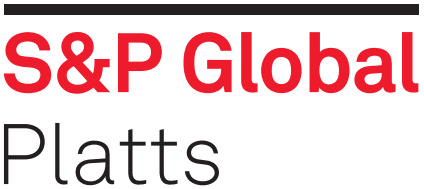
Northern Italian steel mills were all reported operative – and within the framework of the latest decree under which the Italian government increased the locked down areas in its wealthy northern region, Alessandro Banzato, head of Italian steel Association Federacciai, told S&P Global Platts Monday.
Buyers from Italian mills confirmed that they have been receiving their orders, but they also said that the sentiment is gloomy due to the uncertainty over the progression of the virus and the decline in oil prices.
The Italian government on March 8 signed a decree to restrict movements in the Lombardy region and its capital, Milan, including a ban on entering or exiting certain areas of the country. The measures also took effect in the provinces of Modena, Parma, Piacenza, Reggio Emilia, Rimini, Pesaro, Urbino, Alessandria, Asti, Novara, Vercelli, Padua, Treviso and Venetia. The new measures are expected to be in place until at least April 3.
Lombardy is the industrial heartland of Italy, its richest region and one of the richest regions in the EU with a per capita GDP about 26% higher than the Italian and the EU average, according to the European Commission data.
The steel producers and re-rollers in the region include Arvedi, the second largest Italian flats producer; Dalmine-Tenaris, one of the largest worldwide seamless tube producers; Marcegaglia, the world’s largest welded tube producer, and EAF-based longs producers Feralpi, Pittini, Alfa Acciai, Riva and Ori Martin.
Nearly half of Italy’s 23 million mt/year of crude steel is produced in this area.
“Italian mills are still operative also in the so-called red zone because as per decree the movements for work are possible. The production and order deliveries are still continuing as goods can enter and leave the affected territories,” said Banzato, stressing that mills have implemented the caution measures put in place by the government. “The transport of goods is in fact considered as a working need.”
Arvedi said operations are continuing, but with special attention to the new measures. For example, in shipping logistics drivers cannot get exit vehicles and must be equipped with medical protection and prevention devices such as disposable masks and gloves. If the loading or unloading requires exit from the vehicle, a safety distance of 2 meters between people must be maintained and the transport documentation must be transmitted electronically.
Other leading mills confirmed they are working and that they are following very closely the new regulations that cover everything, including food. Canteens are closed but packaged lunches are served to mill workers, while most of the so-called “white collar” employees are working from home and taking only essential business meetings.
Buyer sources confirmed that so far they are receiving orders but that the situation is not easy due to the overall slowdown of the economy. “The situation is complex. Not only in Lombardy and in Italy but also outside Italy. Stock markets are plunging on global recession fears due to a combination of plummeting oil prices and a surge in global coronavirus cases. So if the economy will continue to slow down in general, the steel orders will be less,” said Riccardo Benso, head of Assofermet, the Italian steel distribution association.
“The slowdown in the economy nevertheless does not mean that prices will drop. At the moment coil prices are close to break-even so there is no room for drops in prices. That’s why some European mills have already announced new higher asking prices,” Benso added, underscoring that if supply declines this could help prices rise. “Raw material prices are moving up on lower supply so this can help…but at the moment is too early and too difficult to assess the outlook.”
Market sources also underscored how the industry is learning to work in a different way and this takes time, another reason why there will be some slowdowns in logistics and crude steel production. “We are learning to work in a different way but it is certain that it would be a big problem if this situation lasts too long, and if it will involve other European countries with similar or more stringent limitations,” the head of Federacciai concluded.
— Annalisa Villa




